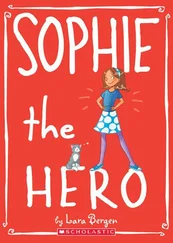Vadik took a long sip of his cappuccino. Some foam got stuck in his beard. Regina reached over the table and wiped it off with her napkin. She was about to start talking when he said, “Some crazy shit has happened while you were gone.”
“What?” she asked.
“Sergey and I aren’t speaking anymore. I threw our precious genius out!”
“You did what? Why?”
Vadik went on a long diatribe listing Sergey’s offenses, from dirty milk glasses to toilet paper to butchered Cohen lyrics.
Regina smiled. “He did that when we were dating too.”
“Yes, but Sergey and I weren’t dating!” Vadik said. “Sergey and I weren’t having sex. I had to endure all that for nothing.”
Regina shook her head in mock compassion.
It was clear to her now that they would never get to talk about her. That was Vadik for you.
But Regina wasn’t angry with him. She was rather relieved that she didn’t have to talk about Nastya.
“Was that all?” she asked.
“Pretty much,” Vadik said. “And he was Skype-fucking Sejun.”
“What?” she asked. “Your Sejun?”
Vadik nodded. He embarked on a long and pretty boring story of how he found out. Regina had to eat her chocolate croissant to keep her focus. Actually, Sergey Skype-fucking Sejun wasn’t all that shocking. She remembered how Sergey always said that he liked Sejun and how Sejun had been impressed with him and his vile Virtual Grave idea at Vadik’s housewarming.
“I mean who does that? She’s my girlfriend!”
Ex-girlfriend, Regina thought, but she hurried to agree with Vadik that there was no excuse. And it wasn’t like it was the first time! Sergey had stolen Vadik’s girlfriend before, of course: Vica. She remembered how it had taken Sergey three weeks to tell her about Vica. Three weeks! He was seeing Vica, fucking Vica, professing his love for her, while Regina, like an idiot, was making arrangements for their summer trip to Karelia!
“So you don’t think I’m an asshole, do you?” Vadik asked.
He stared at Regina, expecting an answer. It was difficult for her to talk because her mouth was full of croissant — she had finished hers and had started on Vadik’s.
She mumbled something incoherent that Vadik interpreted as “No.”
“Okay, but it gets worse. I think I might be interested in Vica a little bit.”
For this Regina had to swallow the entire soggy mass in her mouth. “What? No!”
“I know, I know,” Vadik said.
“What about Vica?”
“Oh, she doesn’t give a damn about me.”
“Good!”
He started talking about online dating and how exhausting it was, how after a while the dating pool started to seem really small, because the same women popped up over and over again. And how he imagined that the women reacted to seeing his profile in a similar way: “Oh, that guy’s still here.” And how much it depressed him.
Then he looked at her expecting words of compassion.
Regina didn’t say anything. She did feel sorry for Vadik, but she was annoyed too. What was it about Vica that made all these men crazy about her? And Vadik could’ve asked her how she was. Out of politeness if not genuine interest!
“I have to get back,” she said, standing up.
They were already at the door when Vadik squeezed her in a bear hug and said that just being near her made him feel better.
Regina smiled. She could never stay mad at Vadik for long.
“Vadik,” she said.
“Yes?”
“Do you think I could take care of a child?”
Vadik laughed. He reached over and flicked the croissant flakes off her scarf.
“If that involves eating a child — then definitely!” he said.
“Thanks a lot!” she said.
He had helped her without realizing it. He had confirmed that her decision was the right one.
What she did was actually honest, and noble in its honesty, Regina decided on the way back. Buoyed by self-admiration, she continued this train of thought. There were plenty of women who didn’t want or need children, but only a few of them were willing to admit it. She had met so many women, both in Russia and in America, who were having children not because they wanted or needed them, but simply because they didn’t want to miss out. “It’s not that I wanted to have a child, but I just really didn’t want to not have one,” a heavily pregnant niece of Bob’s told her at their Thanksgiving dinner. Well, Regina definitely didn’t want a child and refused to worry about missing out. She hated the idea that a woman couldn’t lead a fulfilling life unless she had children. She had managed to build an independent and rich life for herself. An enviable life. It was the unfortunate combination of her mother’s death, then her marriage and emigration that just derailed it a little bit. But she could always claim it back. No more Eat’n’Watch!
Later that week she wrote to Inga and begged her for an assignment. Something nobody else wanted to translate. Anything at all. She didn’t care how boring or difficult it was.
The reply came surprisingly fast. “Sure,” Inga wrote without so much as a greeting, “I have just the project for you.” It turned out to be a Canadian novel called Humdrum that had been published in English about two years earlier, been pronounced a cross between Proust and Munro, genius, and addictive, but had failed to attract enough readers. So Inga’s publishing house managed to acquire it for a song. It was the story of a Canadian woman who lived somewhere in the north and had to raise her three children after her husband died of cancer.
Regina felt dizzy. Children and cancer, the two subjects that made Regina sick, and Inga knew this perfectly well. She must still be really pissed at her. Well, she wouldn’t give Inga the satisfaction of knowing how much that hurt.
“Perfect!” Regina answered and immediately purchased the book on her tablet.
The narrator’s name was Cheyenne. The book started with a description of making porridge that went on for thirty pages. Eight of them were devoted to removing a bug that had gotten into the pot and drowned there. Reading the book, Regina felt as if she were the bug drowning in the pot of oatmeal, but the feeling was oddly pleasant. And then the three kids appeared. With their nasty habits, their constant illnesses, their silly words. They took up so much space, filled it with so much weight and presence, that it felt suffocating. Yet Regina felt that if she abandoned the book, her entire fantasy of a fulfilling life would crumble. She was tempted to give up, bouncing between her desk and the couch in front of the TV, mixing or sometimes supplanting work with Eat’n’Watch, but she always returned to the book.
About three weeks into Humdrum, as Regina was finishing an especially complicated passage and was about to reward herself with a new episode of Spies Are Us and some leftover chili, an e-mail from Aunt Masha popped up in her in-box. She instantly felt a terrible pressure just above her eye sockets. Her finger hovered over the Enter button, unable to go ahead and press it. Just then her microwave beeped announcing that the chili was ready. She considered going to the kitchen to retrieve her bowl first, then became appalled by her cowardice and pressed the button. The pressure in her head was so bad that she could hardly understand the words. She could see that it wasn’t aggressive though. She could tell that the overall tone was polite.
It wasn’t warm, far from it, but it was definitely civil. Regina made herself read it.
Aunt Masha appreciated Regina’s generous offer, but there was no need for it, because she had just found a very good family for Nastya. The husband was a lawyer and the wife was a high school physics teacher and a gardening nut. They had a beautiful dacha on the lake about two hours away from Moscow. They were smart, kind, wonderful people. They were as crazy about Nastya as she was about them.
Читать дальше












